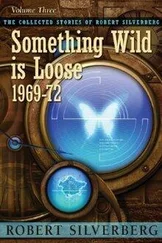Project Itoh - Genocidal Organ
Здесь есть возможность читать онлайн «Project Itoh - Genocidal Organ» весь текст электронной книги совершенно бесплатно (целиком полную версию без сокращений). В некоторых случаях можно слушать аудио, скачать через торрент в формате fb2 и присутствует краткое содержание. Год выпуска: 2012, ISBN: 2012, Издательство: Haikasoru/VIZ Media, Жанр: Старинная литература, на английском языке. Описание произведения, (предисловие) а так же отзывы посетителей доступны на портале библиотеки ЛибКат.
- Название:Genocidal Organ
- Автор:
- Издательство:Haikasoru/VIZ Media
- Жанр:
- Год:2012
- ISBN:9781421550886
- Рейтинг книги:4 / 5. Голосов: 1
-
Избранное:Добавить в избранное
- Отзывы:
-
Ваша оценка:
- 80
- 1
- 2
- 3
- 4
- 5
Genocidal Organ: краткое содержание, описание и аннотация
Предлагаем к чтению аннотацию, описание, краткое содержание или предисловие (зависит от того, что написал сам автор книги «Genocidal Organ»). Если вы не нашли необходимую информацию о книге — напишите в комментариях, мы постараемся отыскать её.
Genocidal Organ — читать онлайн бесплатно полную книгу (весь текст) целиком
Ниже представлен текст книги, разбитый по страницам. Система сохранения места последней прочитанной страницы, позволяет с удобством читать онлайн бесплатно книгу «Genocidal Organ», без необходимости каждый раз заново искать на чём Вы остановились. Поставьте закладку, и сможете в любой момент перейти на страницу, на которой закончили чтение.
Интервал:
Закладка:
The base camp was close to the Pakistan border. The atmosphere there was heavily charged. The handpicked Eugene & Krupps sentinels there would stand guard all night, scowling at the Hindu India–controlled hinterlands on the other side of the forest. The catering company that normally supplied E&K rations refused to come this far, it seemed—during the four days we spent at the base we never saw any of the garrison rations that we had grown accustomed to back in Mumbai. Not that I’m particularly complaining about the rations they provided us with or anything.
The Eugene & Krupps soldiers—technically “employees” I suppose, but if it carries a gun and looks like a soldier and smells like a soldier, then it’s a soldier so far as I’m concerned—spent their days gazing into the surrounding forests. Leland asked one of them what he was looking for and received the answer that he wasn’t looking but rather listening. The sound of a large number of people dying at once created a huge pillar of sound, a choir of tens or even hundreds of voices that rent the heavens of the Indian sky. The soldiers here called this sound a Ligeti. Some E&K soldier must have been a classical music buff and had decided to name the discordant wailing after the modernist composer who, among other things, provided the eerie
soundtrack to 2001: A Space Odyssey .
The E&K troops told us that they never ventured into the forest. A while back they had tried a massive offensive push in collaboration with UN peacekeepers, but it proved a massive failure. After that, E&K came to an informal understanding with Hindu India that the forest was the boundary line.
The E&K troops, then, were all interested in our story, as we had returned from the mythical land beyond the forest. What was it like? Were there corpses everywhere? It was as if we were all Captain Willard, returning from Colonel Kurtz’s unholy kingdom beyond the border.
They eat their Muslim captives, right? No, they worship an idol made out of an unused nuclear warhead and decorate it with the ears of their victims as offerings. These tall tales might have seemed ridiculous, but it was amazing how quickly people reverted from being rational purveyors of information to Chinese whisperers when lines of communication were cut off. When soldiers were garrisoned in the asshole of the world, in the boiling heat, surrounded by hostile forest and with the threat of an unknown enemy constantly looming, it was almost inevitable that stories would be born about the horrors of war.
Stories of the brutality and inhumanity of the unknown enemy were par for the course during war. So were ghost stories. Ghost ships, ghost submarines, ghosts of German soldiers haunting Lithuanian forests. Which was why I was hardly surprised that ghost stories had sprung up here too: tales of swarms of ghosts of massacred Buddhist and Muslim villagers who roamed the forest by night. These were passed on from sentry to sentry.
Why did soldiers fear the imaginary dead when real death was always around them?
Why should a submarine traversing enemy waters be worried about ghost submarines when they faced the very real threat of an unknown enemy minefield that could blow them out of the water at any minute? Why should a soldier stuck in the trenches worry about ghostly comrades beckoning him to the land of the dead when he was up against the real risk of a deadly hail of mortar fire? And yet people could always find ways of being afraid of the dead. Even on the battlefield, where life couldn’t get any more real, people found ways of believing in fictions—or is “delusions” a better word?—that could shock them to their existential core.
There had been a number of times when I wondered whether John Paul was such a delusion—a figment of my imagination that I had invented to scare myself. A ghostly figure who traversed the world to spread a trail of death in his wake. A mythical monster created out of human fears. After all, even though I had captured the man who called himself John Paul, I couldn’t feel any sense of closure. Could this mild-mannered scholar’s a capella song really have been the catalyst for all that death?
Dawn broke, and we climbed into a doubly reinforced Stryker to begin our six-hour journey to the nearest railway station. We used KO pads to keep our captives unconscious for the duration of the journey, so when the time came to wake them up and bundle them out, their muscles had gone to sleep. The prisoners did what they could to loosen up their stiff joints as we roughed them out of the vehicle and onto the platform. One of the prisoners moaned about how we were abusing prisoners of war. He was one of the Indian generals who had given the order to use nuclear warheads on unarmed civilian targets.
“Kneel!” Leland’s battle cell lined the prisoners up along the railway platform. The prisoners were made to kneel, and we kept a close watch on them. If any of them wanted to escape they would have to stand up first, one leg after another. Not too easy when you had eagle eyes watching your every move.
The prisoners stayed in position until they found themselves looking up at an old diesel engine pulling into the station. We had the front three carriages to ourselves, sandwiched by police wagons, and the rear carriages of the train were crammed full of passengers on their way to Mumbai. There were even passengers on the roof. A scene that epitomized this desperately poor country.
I wondered why these people were heading to Mumbai. Were they trying to escape the clutches of Hindu India or just fleeing from grinding rural poverty? I thought of the shantytowns where the laundry workers lived and worked and the slums on either side of the railway line. Was that what awaited the passengers of the train? Or would they end up as beggars on the streets? Did they have relatives in Mumbai who had promised to lend their rural cousins a hand? In any case, one thing was for sure: this train was a container of humanity ready to be dumped into the teeming ocean of life that was Mumbai. But if the passengers were just going to be dropped into the slums, the internment camps of poverty and despair, then they were on a journey out of the frying pan and into the fire. It brought to my mind the Nazi trains that transported Jews from the ghetto to the concentration camp.
The wheels started moving, rattling over the rails. It was a jarring ride—solid, but rough. A Kalashnikov of a train. It was hardly surprising that people occasionally fell from the roof on this sort of journey. A couple of hours sitting on the hard wooden benches and my ass was completely numb.
“I’m going to take a look at the prisoners,” I said. I stood up and walked toward the carriage behind me.
Two of our detachment were in with the prisoners, watching them closely, while the rest of us were split into two groups, guarding the carriages in front and behind respectively. We had made it safely out of the high danger zone about an hour ago and were now down to yellow alert. If Hindu India had been planning to attack us, they would have done so back there. Whatever they might have thought about losing their top leadership, it was unlikely that the remaining Hindu India paramilitary were about to go completely crazy and attempt a suicide charge into territory firmly under the control of the New India government, UN troops, and Eugene & Krupps.
When I arrived in the prisoners’ carriage, the apes all had their mouths shut, although they seemed to be taking their captivity in different ways. Some of them were paralyzed by fear the moment they stepped into the passenger car that was taking them to justice; others were trembling, some were indignant, and yet others tried to maintain a dignified silence—as if the monkeys had any dignity to begin with. The only thing they had in common was that they had become so accustomed to being switched off by the KO pads that they had learned not to show any sign of resistance.
Читать дальшеИнтервал:
Закладка:
Похожие книги на «Genocidal Organ»
Представляем Вашему вниманию похожие книги на «Genocidal Organ» списком для выбора. Мы отобрали схожую по названию и смыслу литературу в надежде предоставить читателям больше вариантов отыскать новые, интересные, ещё непрочитанные произведения.
Обсуждение, отзывы о книге «Genocidal Organ» и просто собственные мнения читателей. Оставьте ваши комментарии, напишите, что Вы думаете о произведении, его смысле или главных героях. Укажите что конкретно понравилось, а что нет, и почему Вы так считаете.












